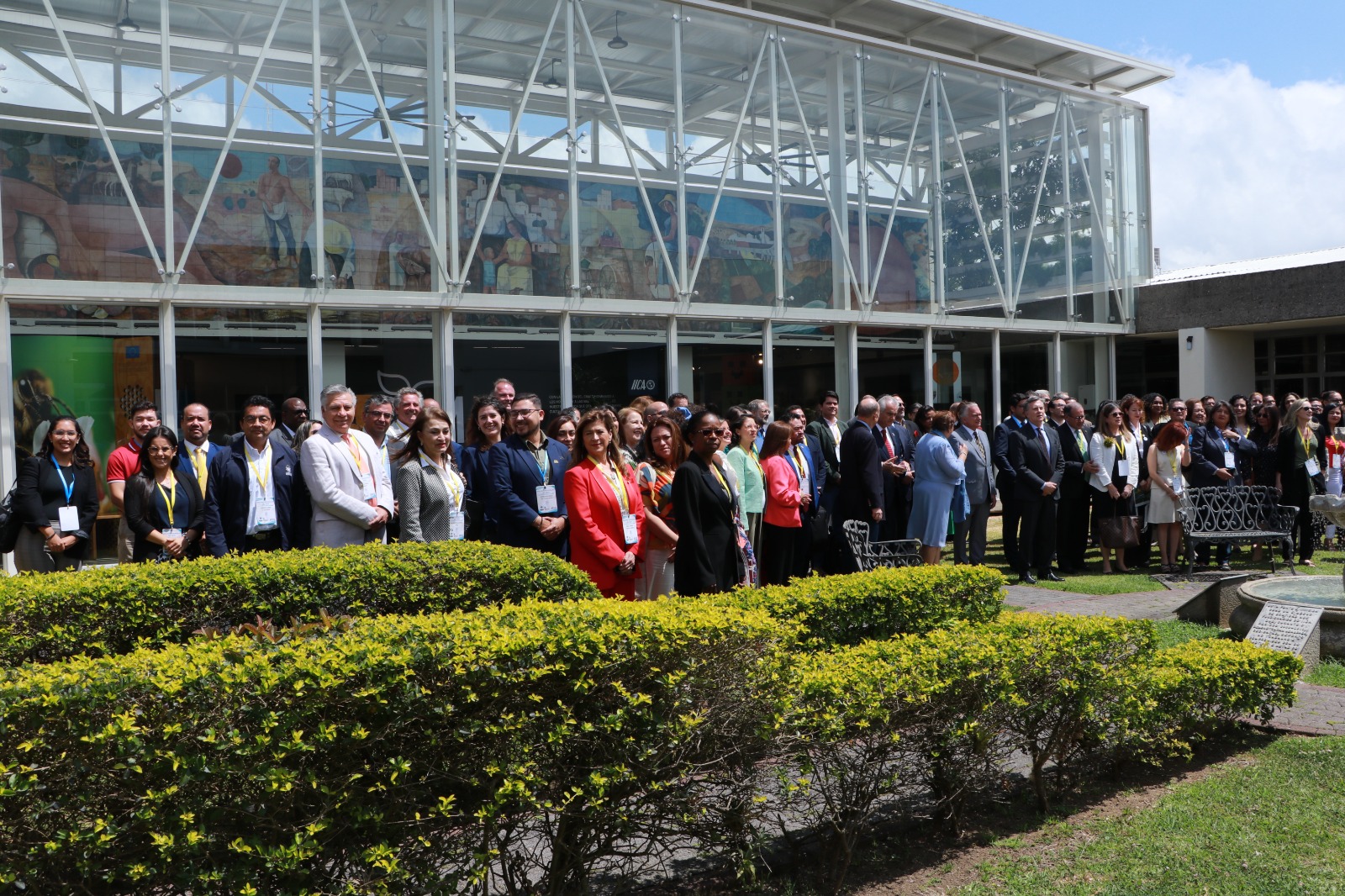The meeting brought together ministers, deputy ministers and other senior government officials, and members of international agencies, the private sector, academia and civil society for three days of work at IICA Headquarters.

San José, March 14, 2024 (IICA). The Regional Water Dialogues in Latin America and the Caribbean came to a close with the region renewing its commitment to Sustainable Development Goal (SDG) 6, which calls for the provision of safe water and sanitation for the entire population. The activities also provided an opportunity to present and discuss concrete solutions to the challenges posed by the context of climate change.
This year’s meeting brought together ministers, deputy ministers and other senior government officials, and members of international agencies, the private sector, academia and civil society for three days of work at the Headquarters of the Inter-American Institute for Cooperation on Agriculture (IICA). Representatives of the cooperation agencies of Germany, France and The Netherlands also took part.
The Economic Commission for Latin America and the Caribbean organized the event in conjunction with IICA, which hosted the activity at its Headquarters in San José, Costa Rica. Across the continent, more than one thousand people followed the sessions via videoconference, thus permitting a wide range of actors to interact.
Officials from Mexico, Guatemala, Honduras, Nicaragua, Costa Rica, Panama, Colombia, Peru, Bolivia, Chile, Uruguay, Brazil and the Dominican Republic presented details of the public policies being implemented in their countries to improve the availability and sustainable management of water and sanitation for the entire population. That is the goal set in SDG 6, adopted by the international community as part of the 2030 Agenda.
The participants reiterated their commitment to the Regional Water Agenda¾approved in February 2023 in Santiago, Chile¾and reached agreement on a joint Latin American and Caribbean position for the World Water Forum that be will taking place in Indonesia in May, the theme of which is “Water for Shared Prosperity.”
Given the critical relationship between water and agriculture, one of the actions identified was the adoption of agricultural practices that ensure more efficient water use and promote soil regeneration, which is essential in the face of the growing water crisis and the challenge of guaranteeing food security.
Furthermore, the participants were agreed on the need to focus on the diversification of energy sources, including renewables, to reduce the pressure on water resources. And it was evident that the countries are very much aware of the importance of cooperation where transboundary water resources are concerned.
The need for effective management and investment in the water and sanitation sector to improve the quality of life of the most vulnerable populations was another of the points emphasized.
Spaces were provided for detailed presentations of the management of water emergencies such as those experienced in Uruguay and Costa Rica. The participants also acknowledged that joint work involving governments, the private sector, international agencies and civil society was key to achieving sustainable water management that would make it possible to tackle the challenges of climate change in the region.
It was clear from the work sessions that the value and the cost of water are two different things; hence, the need to develop a culture that attaches value to the economic, social, environmental, spiritual and cultural importance of water.
Silvia Saravia, Economic Affairs Officer in charge of water issues at ECLAC, Lloyd Day, Deputy Director General of IICA, and Fernando Schwanke, Director of Projects at IICA, took part in the closing ceremony.
“These meetings are intended to serve as catalysts for action in the countries. Therefore, we need to focus on the objectives and goals of SDG 6 that we have yet to achieve. The next big call to arms will come at the World Water Forum, where the adoption of extremely important agreements will be discussed,” said Saravia.
“We must work together, in a coordinated fashion, to achieve a true transition in water management that is both sustainable and inclusive. It is essential to continue innovating and sharing good practices to guarantee equitable and sustainable access to water for everyone in Latin America and the Caribbean. We have a long way to go, but only with coordinated action can we achieve a more prosperous and sustainable future for our communities and for future generations,” she concluded.
Lloyd Day emphasized the fact that without water there can be no life, and that, in the final analysis, the large amount of water used in agriculture is consumed by people in the food they eat.
Day also highlighted the importance of the Hemispheric Water and Agriculture Initiative launched by IICA last year, which was endorsed by the ministers of agriculture of the Americas. Through four areas of work, the initiative is enabling agriculture to contribute to the efforts to solve the water crisis that the region is experiencing, based on the premise that without water there is no agriculture, and without agriculture there is no food security.
Lastly, Schwanke stressed that agriculture is the only productive sector that can produce water, through the protection of forests and care of the soil. “We have 270 million hectares of degraded soils to rehabilitate. And each one of those hectares is more water stored in the soil. We also have 20 million forested areas in need of rehabilitation. So there will be a lot of water there.”
“This is the beginning of a long journey that will take many years, but, as responsible institutions, we have to join forces with other actors and, working together, do much more than we are doing now,” he remarked.
More information:
Institutional Communication Division.
comunicacion.institucional@iica.int











